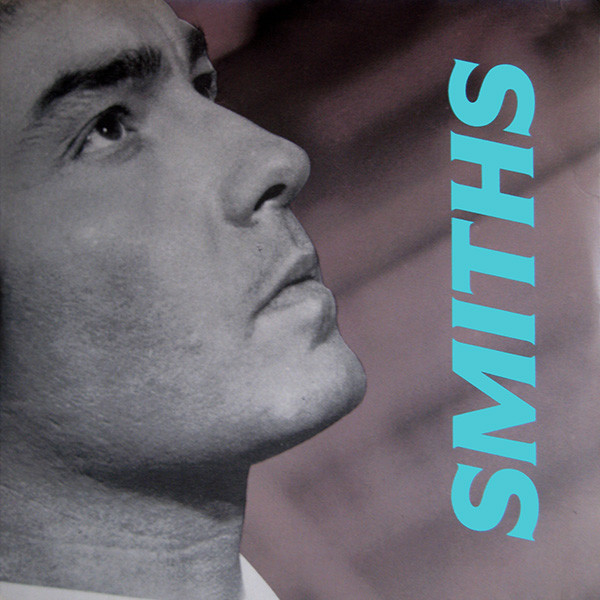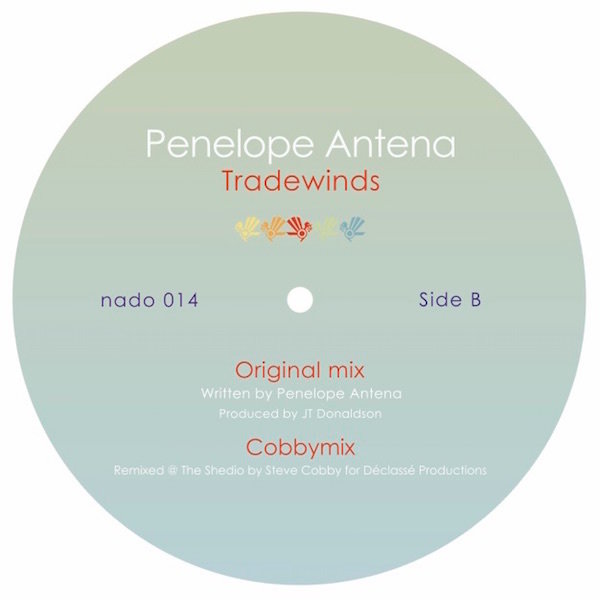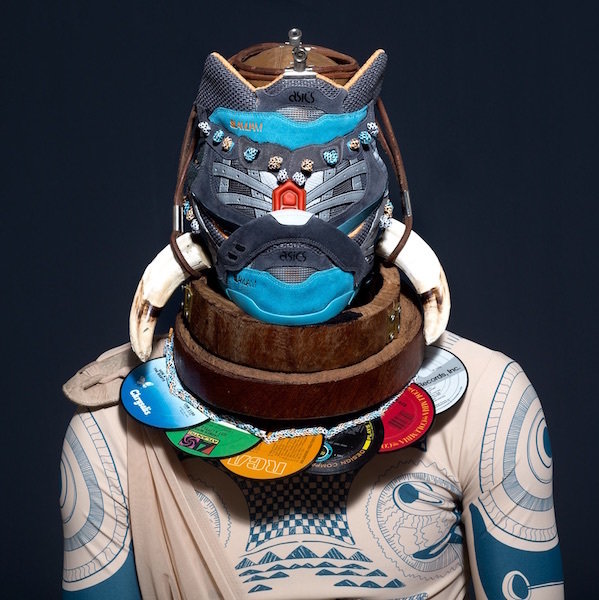Out Of The Box
The Smiths
The Draize Train

I`d just finished my tea. What those more well-to-do would call dinner, or supper. I didn`t know what lunch was until I left home. I still get the two mixed up unless consciously speaking in my posh voice. I excused myself from the table, leaving my Dad to eat alone. We ate in separate sittings, my Dad, my sister and me. Lizzie`d eat first, then me, then Dad. It saved arguments, since Dad would fly into a rage at our table manners. Fly into a rage about anything. I would be shouted at for not sitting up straight. I would be cuffed around the back of the head mid-mouthful for being left-handed. Mum ate in the kitchen, often going without in secret. I went from the back-room that looked onto our small garden and the concrete and barbed wire that walled off the adjoining electrical substation, to the front room that housed the three-piece suite, the sideboard, with its concealed cocktail cabinet, the bottles I had topped up with water, and the TV. For the most part me and Lizzie weren`t allowed in here, it was reserved for guests, but it was Thursday and Top Of The Pops was on. Mum had somehow persuaded Dad.
I`d heard The Smiths in Gary`s car. “How Soon Is Now” would share defeated air-time with “Ocean Rain” on those journeys back South, and Gary and Matt would do an impromptu karaoke routine to “This Charming Man” whenever the moment took them, regardless of location. We`d be in the middle of a pretty rough pub when one of them would sing,
“Why pamper life`s complexities when the leather runs smooth on the passenger…..”
and the two of them would then raise fey-fists to shoulder level, close their eyes, lean ever so slightly backwards, chins tilted towards heaven, and hit the “seat” in loud long, falsetto / yodel. As performances evolved this would become more and more drawn out, ludicrous, strange and camp. I hardly knew them at this point. It didn`t strike me as particularly funny, but I was very taken by its bravery. When they laughed I think it was largely out of relief at pulling off the dare, and when I laughed it was because it was as if they`d won a fight. It endeared them to me no end. In the beginning it was the thing I liked liked about them best.
“This Charming Man” might have asked the question forever on my virgin mind,
“Will nature make a man of me yet?”
but I didn`t really get The Smiths until I saw them on Top Of The Pops. When Morrissey ripped open his jacket to reveal his weedy body and the words “Marry Me” biro-ed on his pigeon-chest as they mimed through “William, It Was Really Nothing”. The gesture mixed self-deprecation with narcism, and was a bold “fuck you” to establishment and established behaviour, two fingers to all those who`d shout “Poof!” Subversive subordination. There was a toughness in the flamboyantly bad, defiant dancing, the twirling in unbuttoned shirts, the gladioli waving. A cynicism and arrogance born of self-defence in the geek that was pushed around at school by pupils and teachers alike, but never kowtowed, never backed down. The bullied kid with the smart mouth answering back, regardless of consequences. This was his day. His revenge. The newspapers called the band miserable but that masked a strong sense of humour, the sort that a “four-eyes” or “mummy`s boy” has to develop in order to survive, which I now saw, and immediately understood. I went out and bought “Hatful Of Hollow” since it seemed to contain all of their first LP, singles and b-sides, and learnt through constant repetition to recall its words by heart.
Initially it was the performance that I was sold on, but lyrically “William” sung to me of escape. I felt I knew all about “humdrum towns” and mapped out cul-de-sac`d futures. In keeping with the song “Gary`s Gang” dissolved as its leader got engaged, then Johnny`s C and F, then Nick. Me, Matt and Dave ditched the West End Discos for gigs and hit a circuit of London`s University and Polytechnic Unions, showcases for the “shambling bands” that ended up captured on the NME`s “C86”: Soup Dragons, Brilliant Corners, and June Brides. The artwork for The Smiths record sleeves, selected by Morrissey with an aesthetic that was ripped off by every indie band and label for the next ten years, harkened after a faded, lost glamour, often working class and tawdry, of dressed up Friday nights and crumpled hungover Saturday mornings with wages spent, of “Lucky Jim” and “Billy Liar”. An aesthetic mirrored in contemporary films such as “Dance With A Stranger”, the classics we were reading, “The past is a foreign country”, and the secondhand clothes we wore. Dress-shirts and waistcoats, and `50s pomade.
I`d be chicken-dancing at The Underground to “What Difference Does It Make?” with Mick, Croydon`s only black psychobilly; Varsity jacket, red-check flannel shirt, tattered cardie, flat-top, and wristbands soaked in Tippex thinners. I`d met Mick at college, after failing my A-levels. For a year I signed on the Dole and studied, determined to pass and get out of Croydon. We`d meet girls drunk on snakebite, racing on speed. I`d be “courting” in shop doorways. Dave`d be coupling under tables. “Hand In Glove” bore the reverb of a half-filled dancehall, its echo and distance capturing the vibe of the four of us, Dave, Louise, Anna, and me, at a concert off our manor, nervous and expecting trouble. A defiant love song for misfits, that I associated with the image of Marlon Brando toying with Eve Marie-Saint`s gloves in “On The Waterfront”. Marr`s playing the concealed blade, the brass knuckles, the greaser, the Rockabilly riff under the pretty Rickenbacker jangle.
“If they dare touch a hair on your head, then I`ll fight to the last breath.”
“Still Ill” was anthem for all of those who felt they didn't fit in. Morrissey up there on his cross, proof that you weren't alone in feeling lonely.
“Does the body rule the mind, or does the mind rule the body? I dunno.”
Hilariously summarised puberty, angst, ennui, wet dreams and wanking, while
“You go and you stand on your own and you leave on your own.”
seemed to precis my life so far. But it was just a case of finding someone patient enough for me to catch up. “Stretch Out And Wait” was the back of Dave`s car, Anna lying topless on her parents` sitting room carpet. “Asleep” flirted dangerously with suicide for someone in such a position of idolatry, but it again sang to me of escape, the break I felt compelled to make, the goodbyes that would need to be said.
By “The Queen Is Dead” I was at University in Leeds, shopping at Morrisons, in the Merrion Centre, and on Deansgate, as “Panic” slipped down the same city`s side streets. I had tour posters on my wall and modelled my “look”, cheaply, on Morrissey. “Unlovable” had me a “Freshman”, lost on campus, though the beauty of the trees and wide leafy streets were not wasted on me. “London” took the same train home via Euston, as I did, when I could afford it. In the main I caught the bus.
“There Is A Light That Never Goes Out” and I`m home for Christmas. At a gig at Brixton Academy driven by two drummers, and support from The Woodentops, Anna holding me in such a way that Dave looks embarrassed. So close that she felt naked. Is want the same as love when you are young?
The Smiths were formed in 1982 when John Maher / Marr knocked on the front door of the home of Steven Patrick Morrissey, in a move allegedly inspired by the similar meeting of Tin Pan Alley legends, Lieber & Stoller. Sharing a musical liking of The Stooges, Patti Smith and The New York Dolls, Morrissey having been the head of the latter`s UK fan club and having authored a short book on the band, a partnership was formed. Mike Joyce auditioned for drums whilst on magic mushrooms and Marr`s friend Andy Rourke was brought in on bass. From the outset there seemed a divide between the players and their singer. They were lads who would drop acid in a break from recording and kick a ball about outside the studio in the dark, while Morrissey would go to bed early. Marr was a “Perry Boy”, with a cool defined by his clothes, his hair and his artistry, an enthusiasm that put fifteen guitar overdubs on “This Charming Man”, whose fringe and beads, and the cherry red Gibson ES 355, bought by Seymour Stein when The Smiths signed to Sire in New York, the one “Please, Please, Please, Let Me Get What I Want” was written on, inspired Noel Gallagher and a million others. Morrissey was an outsider who`d wandered the edges of Manchester`s Art conoscenti and been left standing at the bus stop in the rain once too often, who wore National Health glasses and a hearing aid on stage like poor old Johnnie Ray. Picked on by masters, but good at games. Anti-Thatcher, Anti-Royalist, and vegetarian. In the midst of `80s excess he said he was celibate, but it wasn`t out of choice. His lyrics seemed openly gay, often split between master and servant. Any ambiguity only came from his refusal to answer questions. It was none of your business and it didn`t matter anyway. Unrequited love, longing and heartbreak aren`t the sole property of anybody, and that`s what the bulk of The Smiths` songs were about, gender preferences irrelevant. Lyrics that used the everyday argot of a just bygone era, dialogue lifted from `60s black & white kitchen sink plays and films, famously Shelagh Delaney`s “A Taste Of Honey”. Lyrics that took catchphrases and cliched expressions, northern vernacular and turned them around, gave them new, double, meaning. Asides that broke the fourth wall:
“For there are brighter sides to life and I should know because I've seen them... but not very often.”
“She said I`ve heard you and you cannot sing, I said that`s nothing you should hear me play piano.”
Clever, bookish, much of it sounded like well practised comebacks and putdowns, Wilde for a hero, but somewhere the humour got lost and the miserablism won. “I Know It`s Over” may well have been the tipping point, with its coda of “I can feel the soil falling over my head”. I`d play this loudly in the dark of my bedroom and Dad would shout upstairs, both in annoyance and concern. I find it hard to listen to now. In hindsight, I realise the unnecessary, self-induced depression it encouraged.
By the time of that Brixton Academy gig Marr was doing his best Keith Richards, in a band that had set out to be anti-Rock, a smoking cigarette stuck between the strings of his Fender Jaguar, and there were groups of youths with placards and signs that read:
“Johnny Marr Is God”
Marr resigned in a split that appears to have been largely orchestrated by the music press. The songwriters quoted out of context in bitches and gripes about the inflexibility of one, Morrissey, and the infidelity of the other (Marr had collaborated with Quando Quango, Everything But The Girl, Billy Bragg, Bryan Ferry, …). Neither singer nor guitarist wanted to be the partner that was dumped.
“Hatful” is genius, it came out of nowhere, with John Peel quoted as saying that the thing that impressed him most about The Smiths was that that he couldn`t tell who they`d been listening to. But within that record a formula is struck and adhered to through their remaining three albums: a pretty jangly one, a twangy Rock & Roll one, an epic orchestral one, one that used that wall of tremolo distortion, and an acoustically picked sing-a-long.
“I am human and I need to be loved, just like everybody else does”.
“Fifteen minutes with you, well I wouldn`t say no.”
“If you`re so funny then why are you on your own tonight?”
“If I seem a little strange, well that`s because I am.”
“Nothing`s changed, oh I still love you, only slightly less than I used to.”
“Tell me how long before the last one, and tell me how long before the right one.”
These lyrics plot my course from child to adult, from first sexual relationship to second, but once they lost their relevance, once I started to get laid regularly, The Smiths became less important. Such was my treacherous Pop heart. I`d bought all of their records on the day of release. I had been devoted but I had other loves now, real, not prayed for, and to non-virgin ears, after three years, the endless aching and pining had almost fallen into parody. If I had to choose a Smiths “song” that still captures the exhilaration I felt on that hormonal punch-drunk, alcohol-drunk, rollercoaster of a journey; the madness, the hopelessness, the poetry, the despair, the sheer lust, the fear and joy at being young then it would probably be “The Draize Train”, an instrumental. I guess you grow up, get a life, and get on with it.


